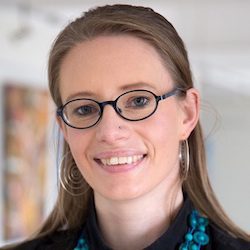
Quantum theory represents not only one of the biggest advancements in our understanding of nature, but it is also a fertile ground to inspire thought experiments and new ideas in fields other than physics. A diplomat who is in two places at the same time? Events which have an immediate effect on the other side of the globe? Crises which are in a state of indeterminacy until we look at them?
You might have heard of Schrödinger’s cat. The feline is part of a thought experiment illustrating the macro-effects of weird quantum states. She is caught in a state of being both dead and alive at the same time – it takes a conscious observer to determine whether she belongs to the world of the living or to the world of the dead. Einstein’s description of quantum phenomena as ‘spooky action at a distance’ and his scepticism towards parts of the new theory expressed in the warning that ‘God does not play dice’ might also sound familiar. Entanglement? Decoherence? Superposition? The thought experiments and conceptual tools of quantum theory leave plenty of room for inspiration and speculation. Can we also use this in the study and practice of diplomacy? There are a handful of scholars and practitioners who suggest exactly that.
The idea of quantum diplomacy first came about in a conversation between former US Secretary of State George P. Schultz and theoretical physicist Sidney Drell, which they recalled as looking like this. ‘As soon as you observe something in physics it changes, so it’s very hard to really observe something,’ says Drell. Schultz replies ‘In diplomacy, you put a TV camera around something, it’s not the same.’
In a 1997 lecture on Diplomacy in the Information Age, Schultz, the seasoned diplomat, makes this link between ideas at the heart of quantum theory and a diplomacy influenced by new Information and Communication Technology (ICT) even stronger. ‘An axiom of quantum theory is that when you observe and measure some piece of a system, you inevitably disturb the whole system. So the process of observation itself is a cause of change. That is all too often the case when a TV camera is right in the middle of some chaotic event, trying to capture its essence objectively.’ It is this lack of certainty and of objective truth and the impact of the act of observation that leads him to endorse the term quantum diplomacy.
We find the next reference to quantum diplomacy in an article in the Hague Journal of Diplomacy by James Der Derian (2011), professor at the University of Sydney and director of the Centre for International Security Studies. Interested in the uncertainty and interconnectedness of a globalised world, Der Derian aims to describe a ‘more radical transformation of diplomacy’ (p. 374). In the article, he works towards understanding ‘seemingly separate events as they become entangled through the ubiquity, interconnectivity and reflexivity of multiple and increasingly globalized media’ (pp. 374-5). Acknowledging new players and new forms of interaction on the diplomatic playing field, he searches for a way to describe a diplomacy that has ‘shifted from a negotiation between states to negotiation among cities, municipalities, streets, and other byways of authority and representation’ (p. 375).
He hints that those who study international relations and diplomacy are caught up in Newtonian thinking, a world view rooted in seventeenth-century physics that does justice neither to the new physics nor to the complex and intertwined social world of the twenty-first century. This, he argues, needs to change and that we need to accept that linear representations of sequences of events and clear chains of cause and effect are no longer appropriate. Events cut across space and time; they are local as well as global and intermingle past and present.
Another discussion of quantum diplomacy took place at Der Derian’s 2015 Q2-Symposium. In an interview, diplomatic scholar and Q2 participant Rebecca Adler-Nissen, professor at the University of Copenhagen, reflected on new ICT and diplomacy. She argued that taking a quantum perspective highlights simultaneity – things happening at the same time and the possibility to be present in various places at the same time. On the one hand, ICT allows for greater openness, public diplomacy, and new actors emerging on the diplomatic scene. On the other hand, the secret world of traditional diplomacy is still very much alive and much needed. Adler-Nissen stressed that negotiations take place in the public eye and at the same time behind the closed door of the secret negotiations of traditional diplomacy. This is the simultaneity of quantum diplomacy. The diplomat has to occupy both spaces – essentially making them a quantum diplomat. The question we then need to ask is how this changes diplomacy.
This blog is in part inspired by the closeness of Diplo’s offices in Geneva to CERN, which hosts the ‘world’s largest and most complex scientific instruments to study the basic constituents of matter’ and is at the forefront of exploring advances in quantum physics. Perhaps this is an ideal opportunity to have more dialogues such as the one between Schultz and Drell and to further explore observer effects, ‘spooky action at a distance’, simultaneity, and entanglements in diplomacy.
A post such as this one cannot offer conclusions. Rather, it is bound to entice more questions. Here are a few to get us started.
- Are we caught up in Newtonian ideas that are no longer appropriate for global politics, if they ever were?
- What inspiration, ideas, and concepts can we draw from quantum physics?
- Do we need to take interdisciplinary dialogue more seriously and, if so, how might this look?
- Are we in danger of borrowing concepts that quickly become empty shells when removed from their original context?
- Do we need quantum concepts to describe these new developments or have we simply forgotten that we already have the tools to describe new diplomacy, globalisation, and the accelerated world of new ICT?


